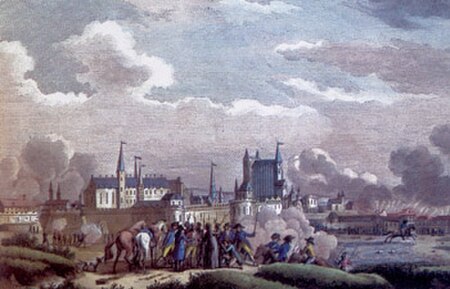Nantes (, US also , French: [nɑ̃t] (listen); Gallo: Naunnt or Nantt [nɑ̃(ː)t]; Breton: Naoned [ˈnãunət]) is a city in Loire-Atlantique on the Loire, 50 km (31 mi) from the Atlantic coast. The city is the sixth largest in France, with a population of 320,732 in Nantes proper and a metropolitan area of nearly 1 million inhabitants (2020). With Saint-Nazaire, a seaport on the Loire estuary, Nantes forms one of the main north-western French metropolitan agglomerations.
It is the administrative seat of the Loire-Atlantique department and the Pays de la Loire region, one of 18 regions of France. Nantes belongs historically and culturally to Brittany, a former duchy and province, and its omission from the modern administrative region of Brittany is controversial.
Nantes was identified during classical antiquity as a port on the Loire. It was the seat of a bishopric at the end of the Roman era before it was conquered by the Bretons in 851. Although Nantes was the primary residence of the 15th-century dukes of Brittany, Rennes became the provincial capital after the 1532 union of Brittany and France. During the 17th century, after the establishment of the French colonial empire, Nantes gradually became the largest port in France and was responsible for nearly half of the 18th-century French Atlantic slave trade. The French Revolution resulted in an economic decline, but Nantes developed robust industries after 1850 (chiefly in shipbuilding and food processing). Deindustrialisation in the second half of the 20th century spurred the city to adopt a service economy.
In 2020, the Globalization and World Cities Research Network ranked Nantes as a Gamma world city. It is the third-highest-ranking city in France, after Paris and Lyon. The Gamma category includes cities such as Algiers, Orlando, Porto, Turin and Leipzig. Nantes has been praised for its quality of life, and it received the European Green Capital Award in 2013. The European Commission noted the city's efforts to reduce air pollution and CO2 emissions, its high-quality and well-managed public transport system and its biodiversity, with 3,366 hectares (8,320 acres) of green space and several protected Natura 2000 areas.










